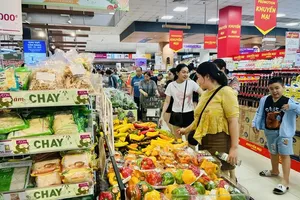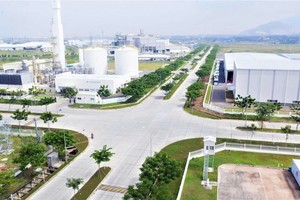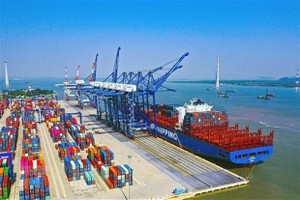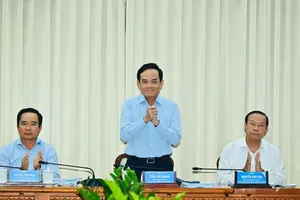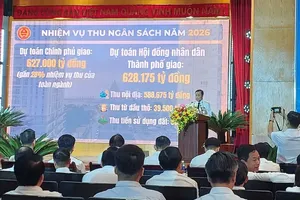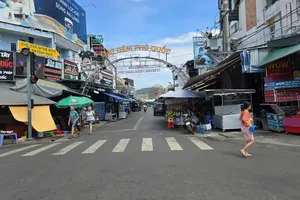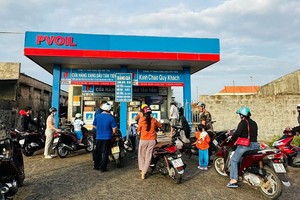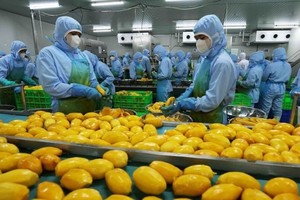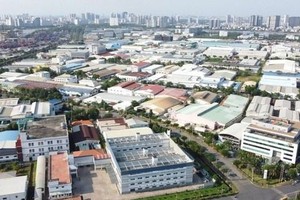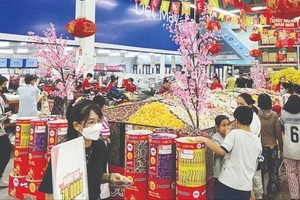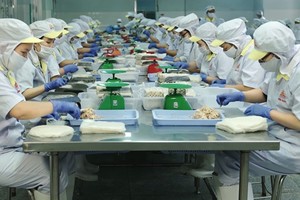Nguyen Thai Hoc, Chairman of the Vietnam Cashew Association, said at a recent conference held in Ho Chi Minh City that the association would limit the number of cashew exporters, to allow firms to improve their product quality, after the association received complaints to that effect from cashew importers.
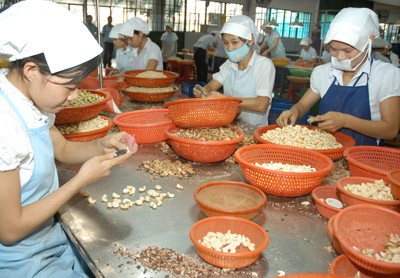
He also said that the quality of cashew nuts grown in Binh Phuoc Province, the country's largest cashew cultivation area, is being highly appreciated by foreign customers and also graded as one of the highest quality cashew nuts in the world.
In 2010, Vietnam’s cashew nuts almost ousted India’s cashew nuts from the Australian market, one of the biggest cashew nut consumers. However, at the conference for international customers of the Vietnam Cashew Association, the Chairman of Australian Cashew Association said that it would ban some Vietnamese cashew exporters for not ensuring quality.
According to Mr. Hoc, during the past two years, the association has been receiving many complaints as to the quality of cashew nuts. This is because of lack of professionalism. Some firms do not even have processing plants. They merely collected cashew nuts from small processers, disregarding quality standards, and ship the products as such, giving the cashew industry a bad name.
In 2011, Vietnam exported more than 166,000 tons of cashew nuts with contributions from 296 companies. Vietnam Cashew Association is now aiming to tightly control cashew nut producers to resolve this issue, Hoc said. Firms have to meet standards in processing, food safety, storage and quality to become a cashew nut exporter.
For several years the Vietnam Association of Seafood Exporters and Producers have also warned of the quality of export pangasius fish after many amateur trading companies jumped into the business. They competed with genuine producers in buying raw fish, sold their products at cheaper prices but failed to guarantee quality. As a result, several European customers sarcastically said that Vietnam sold “ice” to them instead of pangasius fish.
Among agricultural products, rice is the leading commodity which has good control. The government issued Decree 109, effective from October 2011, on regulations for exporting rice. However, in order to make the decree, the Ministry of Industry and Trade, the Ministry of Agriculture and Rural Development, and Vietnam Food Association had drafted it several times and conducted polls four times.
During the drafting process, the authorities had faced protests from firms, especially from trading companies, and small firms. However, in the face of failings in export of rice, the government had to promulgate the decree to protect the quality and the value of Vietnamese rice and farmers, from pressure to lower prices by importers.
Thus, after rice and coffee, cashew nuts have become the third commodity that authorities seek to reduce export hubs.
There were once less than 20 rice export hubs in Thailand, the biggest rice exporter in the world. But in Vietnam, before the Decree 109 took effect, there were more than 200 rice exporters. In Indonesia, one of the biggest coffee exporters, there are also a few exporters. In Norway, the largest salmon exporters, firms which want to export salmon have to ask for permission from the association.
The Ministry of Agriculture and Rural Development encourages the associations to restructure export hubs for the mainstay of agricultural produce to prevent the quality and prestige of products from being damaged.
